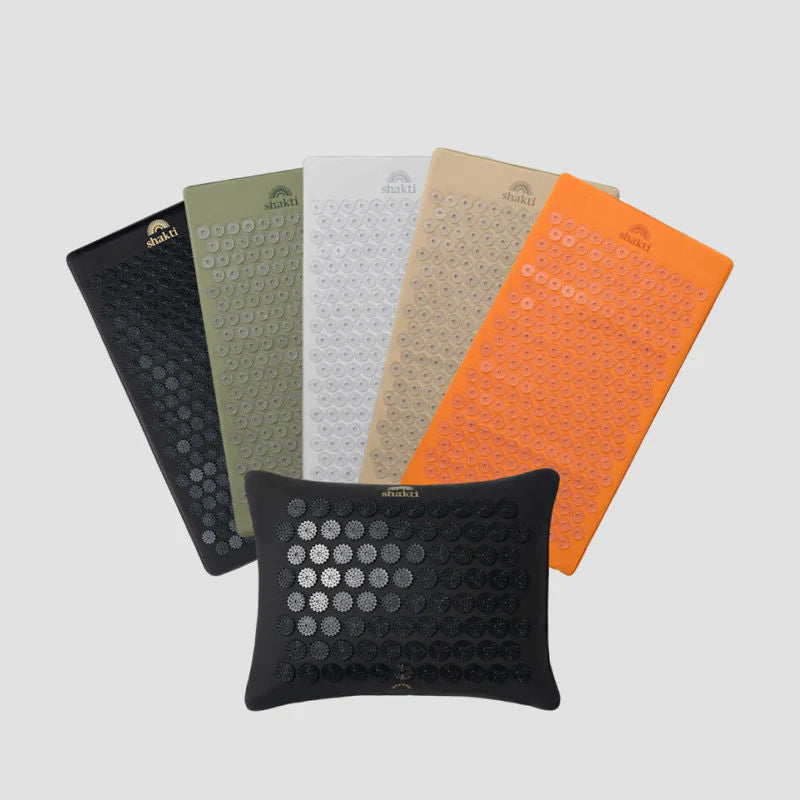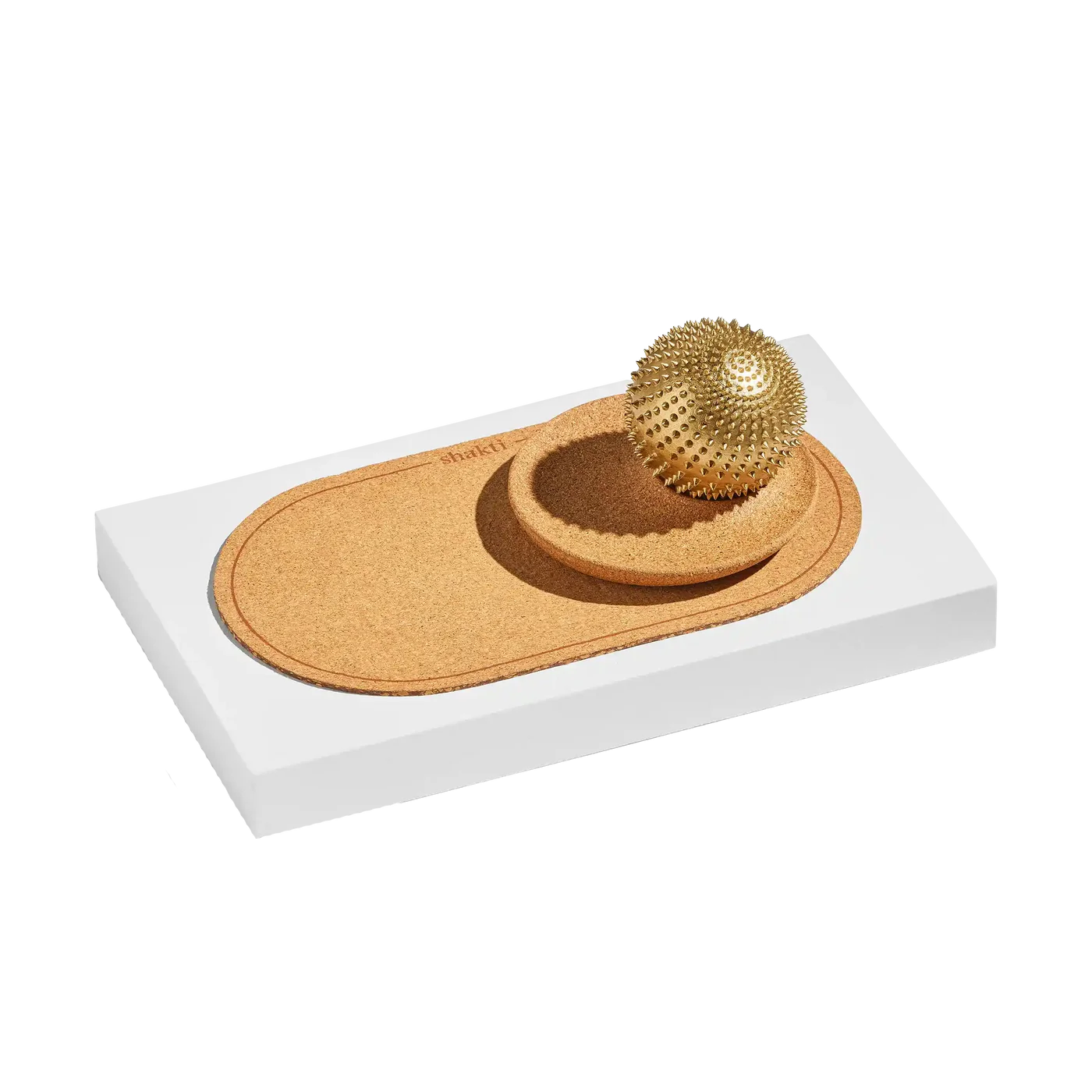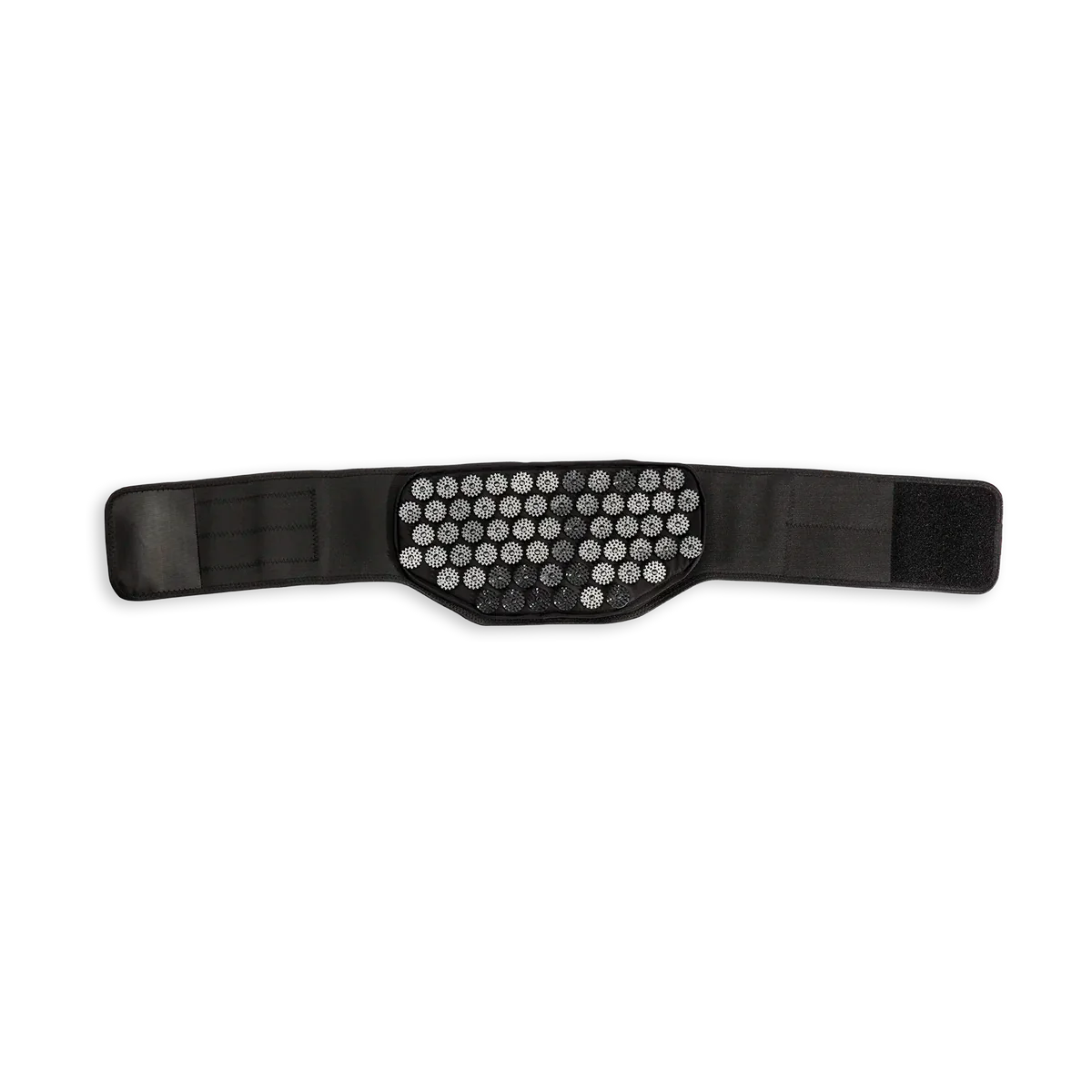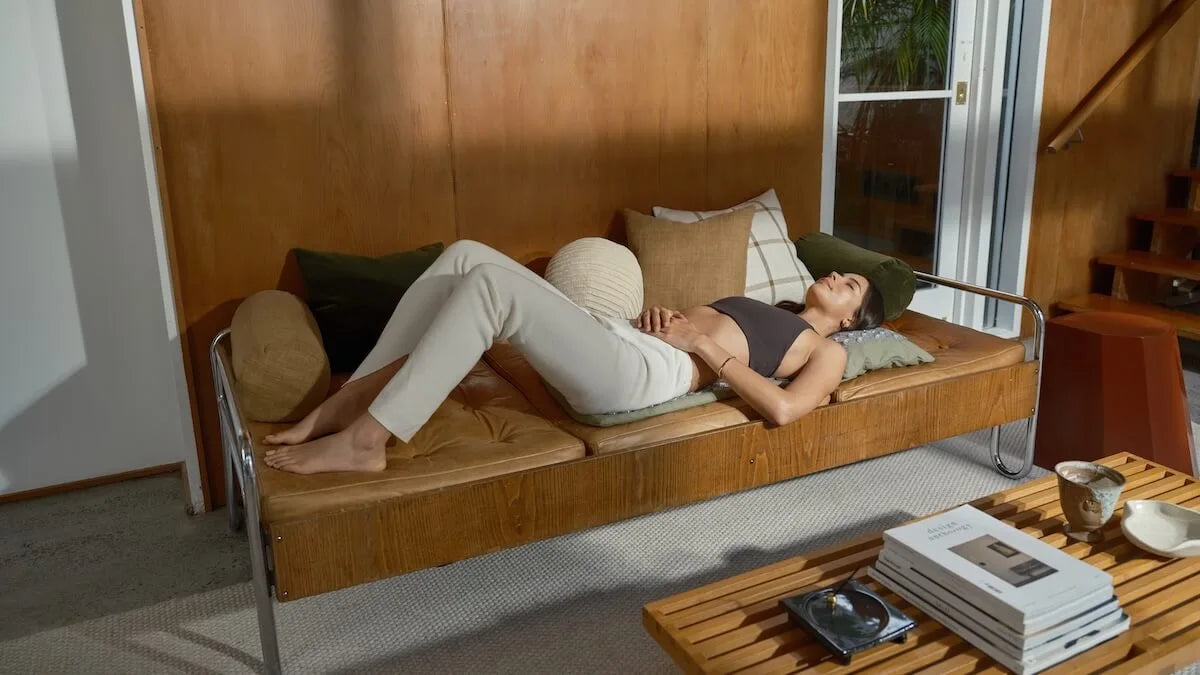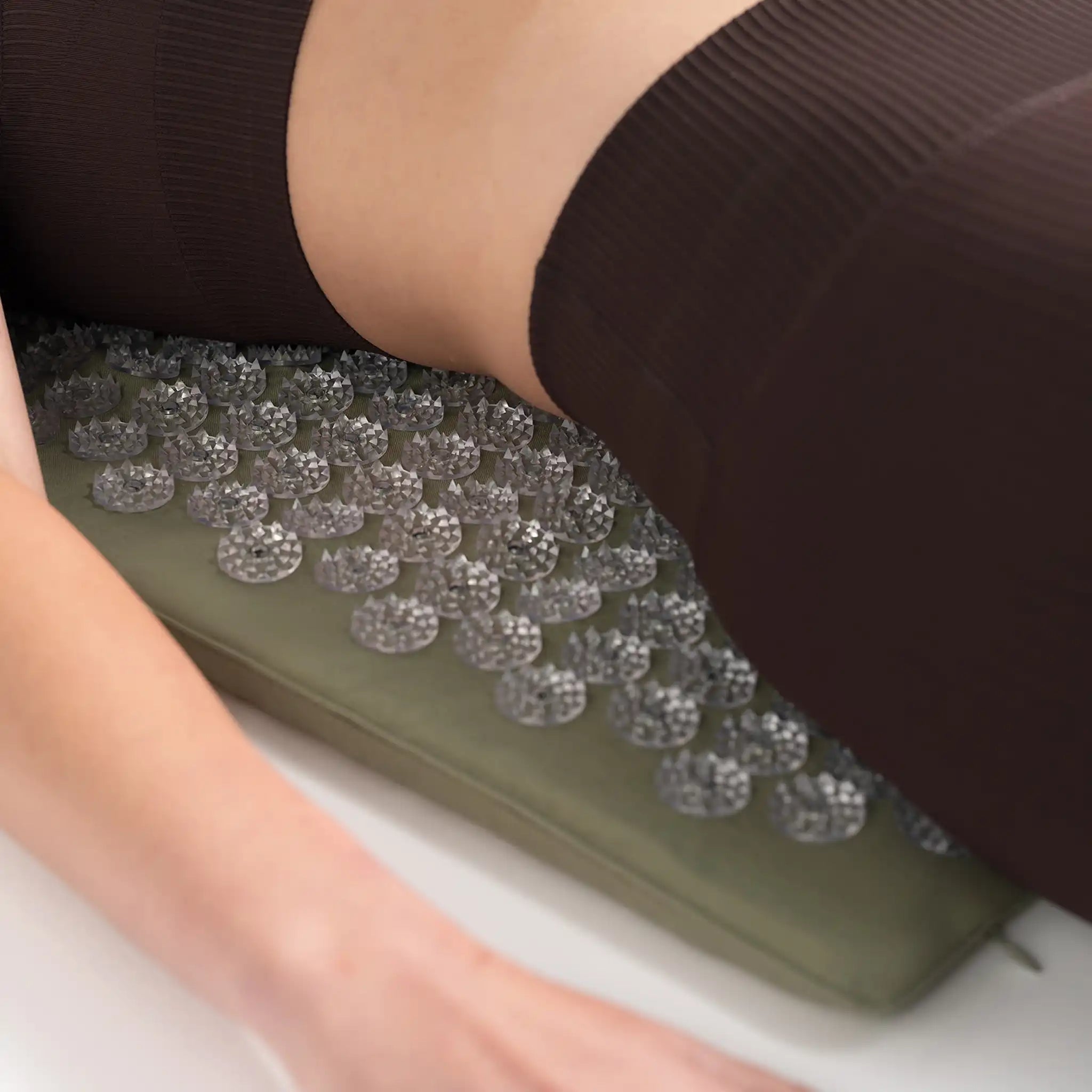Dizziness is a very unpleasant feeling. You feel unsteady on your feet, lose your balance quickly and often experience other symptoms such as nausea or eye tremors. This dizziness is often caused by neck tension and blockages in the cervical spine. In this article, we therefore take you through the complex topic of dizziness caused by neck problems, shed light on possible causes and answer the question of what you can effectively do about it.
Content
1 How does dizziness develop? A look at the balance system in the body
2. a feeling of dizziness due to neck tension can take various forms
3. effects of neck tension: dizziness & headaches are frequent companions
4. a look at the causes: Why does dizziness come from the neck?
5. cervical spine syndrome: dizziness caused by the cervical spine
6. dizziness due to neck blockage
7. dizziness due to stiff neck
8 "Cell phone neck" as a symptom of the smartphone era
9. dizziness from the neck: What to do and what really helps?
10. natural help for dizziness caused by neck tension
11. further therapeutic approaches for dizziness caused by neck tension
12. how you can prevent dizziness caused by neck tension
How does dizziness occur? A look at the balance system in the body
Your body works with a complex balance system so that you can walk, stand and orient yourself safely in your surroundings. This system constantly processes information that comes together from different areas:
- Inner ear: The inner ear contains the organ of balance, which registers movements and changes in position. When you turn your head or lean forward, small sensory cells perceive these impulses and pass them on to the brain.
- Eyes: At the same time, your eyes provide visual information. This confirms the position you are currently in. Depth sensitivity also plays a major role - it ensures that you unconsciously feel where your head, neck and body are in space.
- Neck muscles: The neck muscles are directly connected to the brain stem via nerve pathways. This is the area where all this information is collected and evaluated. If incorrect or contradictory signals arrive here - for example due to tense muscles or blockages in the cervical spine - this can confuse your brain. The result is a feeling as if everything is spinning or swaying.
Sensory overload also plays a role if you suffer from dizziness due to neck tension. If your body receives too much different information at the same time or cannot process it clearly, it also reacts with dizziness. This protective signal is intended to alert you to the fact that something is out of balance - in the truest sense of the word.
Can dizziness come from the neck?
The answer is clear: dizziness is very often directly related to tension in the neck. Particularly if you often work one-sidedly, sit at a desk for long periods or are frequently under stress, certain muscle strands around the cervical spine shorten.
The anatomy behind it is quite complex: numerous fine muscles and fasciae run through your neck, stabilizing your head and coordinating all movements. Between them, sensitive nerve pathways run through the structures that transmit signals to your balance center in the brain. If these muscles are permanently hardened or if trigger points - painful thickenings in the muscle tissue - develop, the impulses get mixed up.
Your brain then receives incorrect information about how your head is currently aligned. It is precisely these contradictory signals that can trigger a feeling of dizziness due to neck tension.
How muscle stiffness affects your balance
This feeling of dizziness often creates a vicious circle. You become unsteady when walking or standing, which causes the neck muscles to tense up even more. Poor posture hardens and tension also builds up in the nerve tracts and fasciae. Trigger points in particular can act like interference transmitters. They send unclear or exaggerated stimuli to the balance center. Your brain tries to reconcile this contradictory information with the signals from your eyes and inner ear. If this is not successful, the typical feeling of dizziness increases due to neck tension.
Dizziness caused by neck tension can take various forms
Dizziness does not always feel the same. Some people experience it more as a slight swaying, while others have the feeling that everything around them is spinning. Two types of dizziness are particularly common with neck tension: rotatory vertigo and swaying vertigo, which we will look at in more detail below.
Rotational vertigo due to tense neck
Rotational vertigo is one of the most common complaints when your neck is very tense. Those affected describe the feeling as if everything around them is spinning - similar to after a ride on a merry-go-round. This dizziness can last just a few seconds or last longer. It usually occurs suddenly, for example when standing up, turning over in bed or making rapid head movements. It is precisely this unpredictability that is very stressful for those affected, as they cannot foresee the dizziness.
Swaying vertigo: unsteady stance due to neck problems
Swaying vertigo manifests itself differently: you have the feeling that the ground beneath you is giving way or swaying. Some describe it as "walking on absorbent cotton" or "like standing on a swaying ship". Tense neck muscles also play a role in swaying vertigo, especially if they exert constant pressure on sensitive nerves and your brain constantly receives unclear position signals. Swaying vertigo often occurs together with light-headedness, slight dizziness when walking or concentration problems.
Effects of neck tension: dizziness & headaches are frequent companions
Neck tension is not only felt locally in the form of pulling or pressing pain. It often affects completely different areas of your body and can significantly restrict your well-being. Dizziness often occurs together with headaches. If muscles around the cervical spine are permanently hardened, the pressure on the nerves and blood vessels increases. As a result, certain regions of the head are less well supplied with blood, which in turn triggers headaches. Many sufferers describe the pain as dull, pulling or tense and feel it mainly in the back of the head or at the temples.
This is often accompanied by other complaints:
- a feeling of pressure or tightness in the head
- Visual disturbances or flickering in front of the eyes
- a feeling of "being beside yourself"
Neck pain: dizziness & nausea - when tension hits the stomach
In addition to headaches and dizziness, tense neck muscles can also cause nausea. This is mainly due to the fact that the neck is closely connected to the autonomic nervous system. If this is irritated by chronic tension, your body reacts with symptoms such as a queasy stomach, loss of appetite or a gag reflex.
In addition, the feeling of dizziness caused by neck tension triggers a kind of "emergency program" in the brain to spare you and force you to pause. This can also make the nausea worse. Some sufferers feel an unpleasant tugging sensation in their neck even with slight movements or when looking down, which "slips through" directly into the stomach.
A look at the causes: Why does dizziness come from the neck?
Neck tension and back pain are a symptom of our times. Sitting for long periods in the office, constantly looking at our smartphones, too much stress and too little balance mean that the muscles in the neck become increasingly tense and lose their natural flexibility. In most cases, the cause of dizziness due to neck tension is not just due to a single trigger, but a complex interplay of different factors. So take a close look and think about what could be your personal trigger and what you can specifically change.
Here is an overview of the most common causes:
- Poor posture at work: Many people sit for hours on end in a forward-leaning position. This position shortens certain muscle groups and overloads others. The area between the neck and shoulders in particular is put under constant tension. This not only causes tension, but can also irritate the fine nerves that control your balance.
- Stress and mental strain: Stress not only affects your mood, but also your body. It triggers tension, the neck and shoulder muscles contract reflexively, often over many hours or days. This leads to increased muscle tension, which in turn promotes dizziness and headaches.
- Unfavorable sleeping positions: Your neck is in an unfavorable position on a Pillow that is too high or too hard. Muscles and nerves are put under a lot of strain overnight. In the morning, this is often noticeable through a pulling or pressure sensation and sometimes also through a feeling of dizziness when getting up.
- Previous injuries or accidents (whiplash): Car accidents or falls often result in overstretching of the neck structures. Even if the acute symptoms initially subside, subtle functional disorders or blockages often remain, which only become apparent later in the form of dizziness, headaches or tension.
- Age-related changes to the spine: Over the years, the intervertebral discs and joints in the cervical spine naturally wear down. These changes can restrict mobility, put increased strain on the muscles and exert pressure on sensitive nerves. Especially in combination with a lack of movement, this can lead to a feeling of dizziness due to neck tension in the long term.
Cervical spine syndrome: Dizziness caused by the cervical spine
Cervical spine syndrome is one of the most common causes of neck pain, tension and dizziness. Cervical spine stands for "neck spine" - the movable part of your spine that supports your head and enables movements such as turning or tilting.
Cervical spine syndrome is not a clearly defined disease, but rather a "bundle" of different complaints that arise from functional disorders or irritations in the cervical spine.
A distinction is made between different forms of cervical spine syndrome:
- Cervical spine syndrome: Complaints are mainly limited to the neck and shoulder area.
- Cervicocephalic cervical spine syndrome: pain and tension radiate into the head - accompanied by headaches or concentration problems.
- Cervicobrachial cervical spine syndrome: discomfort radiating down the arm, associated with tingling or numbness.
What all these forms have in common is that they affect the sensitive area of the cervical spine - and thus trigger not only local pain, but also cervical spine vertigo and associated symptoms.
Dizziness due to neck blockage
Dizziness caused by neck tension is not the same as dizziness caused by blockages in the neck. Unlike pure muscle tension, a blockage usually affects the small vertebral joints of the cervical spine or the so-called facet joints. These joints can become "stuck" in a kind of misalignment due to unfavorable movements, incorrect posture or remaining in one position for a long time and can no longer move freely. Doctors also refer to this as a functional blockage.
The affected area then feels stiff and reacts painfully to pressure or movement. Typically, you will only be able to turn or tilt your head to a limited extent. Many sufferers report that dizziness due to a neck blockage occurs particularly when turning around, standing up quickly or leaning their head back.
Can I release a neck blockage myself?
The good news is that dizziness due to neck blockages can be treated quite easily. Heat plays a particularly important role here: a hot water bottle, a cherry stone cushion, a warm bath or even red light promote blood circulation and relax cramped muscles. A gentle massage can also help. To do this, place your fingertips on the painful area, the so-called trigger point, and apply light pressure with small, circular movements. This improves the blood supply to tense muscles and gradually loosens them up.
You can also do specific exercises to carefully improve the mobility of your neck:
- "No-no movement": Turn your head slowly from side to side as if you were saying "no". Make sure you only make small movements and don't make any jerky movements.
- Chin exercise: Push the chin slightly forward and then gently pull it back to mobilize the cervical spine.
- Head tilt with stretch: Slowly tilt your head towards your right shoulder while stretching your left arm downwards. Then switch sides. This stretch opens the side of the neck.
- Tension exercise: Pull your shoulders down loosely, press your head lightly against the palm of your hand (front, back, side) to gently strengthen the neck muscles.
- Stretching exercises: Carefully tilt your head to the side and turn it slightly forwards until you feel a gentle stretch. Hold for a few breaths, then switch.
Sometimes magnesium can also help you, because a magnesium deficiency also promotes blockages in the neck. It is best to gradually try out what can best help you with blockages in your neck.
Dizziness due to stiff neck
Colloquially referred to as a "stiff neck", this tension is caused by a sudden overload, for example during sport or an unfavorable sleeping position. Stiffness in the neck and the resulting dizziness can also occur if you are exposed to draughts.
This is what happens in your body: when you have a stiff neck, your muscles tense up reflexively to protect the sensitive neck area. This protective tension blocks the mobility of the cervical spine. But there is also good news: You will only feel a stiff neck for about 1 to 3 days, so the dizziness caused by neck tension should also soon pass. Gentle self-treatment with heat and light trigger point massages can also alleviate acute symptoms.
The "cell phone neck" as a symptom of the smartphone era
The smartphone is our constant companion today. It's no longer just used for communication, but for organizing our entire lives - from saving your shopping list to booking your next vacation. You probably hold the device in your hand just as often. However, as you scroll across the screen, you adopt a very unhealthy posture for your neck: You automatically bend your head forward. This tilt puts enormous strain on your cervical spine. A tilt of just 15 degrees puts up to 12 kilograms of weight on your neck. The more you bend your head down, the greater this pressure becomes.
This phenomenon is colloquially referred to as "cell phone neck". Over a long period of time, this posture can
- muscular tension in the neck and shoulder area,
- shortened chest muscles,
- Pain that radiates to the head or arms,
- and not least lead to dizziness.
What's particularly tricky is that you often don't even notice this strain until the discomfort sets in at some point. So if you often feel dizzy due to neck tension, it's worth taking a look at your daily habits. How often do you hold your cell phone at chest height? How long do you sit with your head down in front of the screen? Sometimes all you need to do is hold your phone a little higher at eye level when using it or be a little more aware of how you use the device to relieve the strain on your balance system.
Dizziness from the neck: What to do and what really helps?
Before you actively combat dizziness, it is important to first seek medical advice to determine the cause of your symptoms. After all, dizziness can have many causes - from harmless tension to circulatory problems to more serious illnesses. Only once it has been ruled out that something else is behind it can you be sure that your dizziness is caused by neck tension.
In this case, there are various options. Here are a few effective approaches to what you can do if your neck is making you dizzy.
What immediate measures are there for cervical spine vertigo?
If the dizziness occurs acutely, you can do the following to get back on your feet safely:
- Keep calm and sit down: If you feel dizzy, sit down or lie down first to avoid falling.
- Gently relieve the neck: Support your head or place a small Pillow on the back of your neck so that your muscles can relax.
- Calm your breathing: Breathe in and out slowly. Even breaths signal to your nervous system that there is no danger.
- Apply heat: A warm grain pillow or hot water bottle on the back of the neck often noticeably relaxes the muscles.
- Gently massage the shoulder/neck area: Use your fingertips to gently massage the transition from neck to shoulders in a circular motion - without pressure or jerking movements.
- Avoid movement for the time being: Refrain from turning or tilting your head quickly until the dizziness subsides.
Warmth, gentle mobilization and conscious breathing
Heat helps because it stimulates blood circulation in the muscle tissue. This allows more oxygen and nutrients to reach the tense areas. At the same time, the heat ensures that the muscles relax reflexively. The tissue becomes softer and more elastic - the pressure on sensitive nerves decreases.
In combination with gentle movements and calm, conscious breathing, you can break the vicious circle of tension and dizziness. Just 10-15 minutes of warmth or a short mobilization helps many sufferers noticeably against the dizziness caused by neck tension.
Neck tension & dizziness: exercises that can help you
There are two simple exercises you can try to get your balance back.
1. tilt your head to the side
- Sit upright on a chair or stand in a relaxed position.
- Slowly tilt your head towards your right shoulder until you feel a gentle stretch on the left side of your neck.
- At the same time, pull your left shoulder down slightly to increase the stretch.
- Continue to breathe calmly and hold the position for about 20 seconds.
- Slowly straighten your head again and repeat the exercise on the left side.
2. pull your chin towards your chest
- Assume an upright sitting or standing position.
- Slowly lower your chin towards your sternum until you feel a slight pull in your neck.
- Let your shoulders sink down in a relaxed manner.
- Stay in this position for 15 to 20 seconds and breathe in and out calmly.
Perform both exercises in a controlled manner and without jerky movements.
Natural help for dizziness caused by neck tension: Gentle support with acupressure
Acupressure is a method that is thousands of years old and has its origins in traditional Chinese medicine. It is based on the simple assumption that certain points on your body are connected to organs, muscle groups and your nervous system. By applying gentle, even pressure to these points, you can release tension, promote blood circulation and calm your autonomic nervous system.
Many fine nerves and receptors are active in the neck area in particular, which influence your balance. Acupressure can help to break this cycle of tension, incorrect transmission of impulses and dizziness.
How the Shakti acupressure cushion supports you with dizziness caused by neck symptoms
The Shakti acupressure neck pillow combines the principle of acupressure with an ergonomic shape that hugs the neck and shoulder area. It is made of skin-friendly cotton and has many small plastic points. These pressure points stimulate the acupressure zones evenly and intensively - without you having to actively apply pressure.
Its fit is specially developed for the neck and ensures that the pressure is evenly distributed over tense muscle strands. This stimulates blood circulation and makes the tissue softer and more supple. At the same time, the fasciae, which often stick together due to one-sided strain, are loosened. The gentle stimulation can relieve sensitive nerve tracts, which are partly responsible for dizziness. In this way, the Pillow can not only relieve tension, but also calm the balance system.
Recommended use for dizziness caused by neck tension:
- Start with 5-10 minutes per application to get used to the feeling. Over time, you can increase the duration to up to 20 minutes.
- Daily application or at least several times a week is ideal.
- Lie relaxed on your back. Make sure that your head is centered on the
- Pillow is resting and your shoulders are relaxed. Try to breathe evenly and deeply during use.
Further therapeutic approaches for dizziness caused by neck tension
In addition to acupressure - whether with a Pillow, the Shakti Spiky Ball or acupressure mat - there are other proven approaches to successfully treat dizziness caused by neck tension. Physiotherapy and manual therapy can release blockages and improve the mobility of the cervical spine. Osteopathic treatments can also have a supportive effect, as they take into account the entire musculoskeletal system and its interrelationships.
Relaxation techniques such as yoga, progressive muscle relaxation or breathing exercises promote stress reduction and can sometimes break the vicious circle of tension and dizziness. As stress and anxiety often exacerbate the symptoms, it is also worth taking targeted action here. Last but not least, an active lifestyle plays an important role: sufficient exercise, a balanced diet and regular short breaks are never a disadvantage and help your body to regain its balance in the long term.
How to prevent dizziness caused by neck tension
To prevent persistent tension and dizziness from occurring in the first place, it is worth taking a conscious look at your everyday life.
You can implement these tips straight away:
- Ergonomic posture: When sitting, make sure that your head remains straight above your spine - avoid pushing it forward.
- Movement breaks: Stand up regularly, stretch your shoulders and neck or take a few steps.
- Mindfulness: notice when you start to hunch your shoulders or tense up
- Reduce stress: Plan small time-outs to switch off mentally, for example through meditation or breathing exercises.
Even small changes can make a big difference in preventing dizziness and neck pain.
Conclusion: This helps against dizziness caused by neck tension
Dizziness caused by neck tension is a burden on your everyday life and often significantly restricts your quality of life. But: you are not helplessly at the mercy of it. If serious causes have been ruled out, warmth, targeted exercises, conscious relaxation and acupressure can help you to relieve tension and regain your balance. Make sure you adopt an ergonomic posture, take regular exercise breaks and take your body's signals seriously. With a little patience and conscious awareness, you can do a lot to noticeably reduce dizziness and neck pain.


